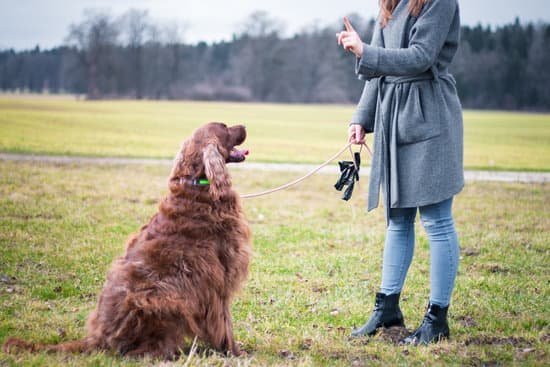Separation anxiety can be a serious issue for dogs, but it can be treated with patience and consistency. The following steps can help you train your dog to overcome his or her separation anxiety:
1. Start by gradually increasing the amount of time you spend away from your dog. Begin by leaving your dog alone for just a few minutes, and then gradually increase the amount of time you’re away.
2.Make sure your dog has plenty of toys and chew bones to keep him or her occupied while you’re away.
3. Leave your dog some treats or kibble in a Kong toy so he or she can occupy him or herself while eating.
4. Make sure your dog has a comfortable place to sleep and relax when you’re not home.
5. Be sure to praise your dog when he or she behaves calmly while you’re away.
6. If your dog begins to exhibit signs of separation anxiety, such as barking, whining, or salivating, calmly and quietly return to the room until he or she calms down. Do not give your dog any attention while he or she is exhibiting signs of anxiety.
7. If your dog continues to exhibit signs of separation anxiety, consult with a professional dog trainer for help.
Dog Trainer Separation Anxiety
Separation anxiety is one of the most common behavioral problems seen in dogs. Dogs with separation anxiety typically experience extreme anxiety and behavioral problems when they are left alone.
Dogs with separation anxiety may exhibit a range of behaviors, such as whining, barking, howling, scratching, digging, or chewing. They may also try to escape from their confinement, or urinate or defecate in inappropriate places.
Many dogs with separation anxiety will pace or spin around when their guardians are getting ready to leave them alone. Others may become clingy and follow their guardians around the house.
Some dogs with separation anxiety may even become destructive, biting or chewing on furniture, shoes, or other items in the home.
There are many possible causes of separation anxiety in dogs. Dogs may develop separation anxiety when they are left alone for long periods of time, when their guardians change their routine or leave them at a kennel or boarding facility, or when there is a traumatic event in the dog’s life, such as the death of a guardian or a move to a new home.
There are many things you can do to help your dog overcome separation anxiety. The most important step is to make sure that your dog has a safe, comfortable place to stay when you’re not home. This may be a crate, a kennel, or a designated spot in your home where your dog is allowed to stay.
You can also help your dog overcome separation anxiety by teaching him to associate being alone with positive things, such as treats or playtime. You can also try to create a routine for leaving your dog alone, and make sure to departure calmly and quietly.
If your dog is experiencing severe separation anxiety, you may need to seek the help of a professional dog trainer or behaviorist. A professional can help you create a behavior modification program specifically tailored to your dog’s needs.
Phoenix Dog Anxiety Training
Phoenix dog anxiety training is a crucial service for dog owners in the Phoenix area. Many dog owners are unaware of the signs of anxiety in their dogs, and as a result, the dogs’ anxiety can worsen over time. Left untreated, anxiety can lead to destructive behaviors and even health problems.
Anxiety in dogs can be caused by many factors, including changes in routine, moving to a new home, loud noises, and being away from their owners. In some cases, the anxiety may be due to a medical condition.
The first step in treating a dog’s anxiety is to identify the cause. If the anxiety is due to a medical condition, the dog’s veterinarian will prescribe the appropriate treatment. If the anxiety is due to a environmental factor, the dog’s owner will need to take steps to change the environment or help the dog cope with the stress.
Phoenix dog anxiety training can help dog owners learn how to identify the signs of anxiety in their dogs and how to help them cope with the stress. The training can also help owners learn how to create a calm and safe environment for their dogs.
Dog Anxiety Training Glendale Arizona
Many dog owners struggle with their dog’s anxiety. Dogs can become anxious for various reasons, such as being left alone, being in a new environment, or meeting new people. If your dog is experiencing anxiety, it can be difficult to train them. However, with the help of a professional dog trainer, you can train your dog to overcome their anxiety and become a well-behaved member of your family.
At our dog training facility in Glendale, Arizona, we offer anxiety training for dogs of all ages and breeds. Our trainers will work with you and your dog to develop a training plan that will help your dog overcome their anxiety. We will help you to identify the things that trigger your dog’s anxiety, and we will work with you to create a plan to help your dog overcome their fear.
In addition to anxiety training, we also offer obedience training, behavior modification, and puppy training. We have a variety of training programs to suit the needs of every dog owner. We also offer private training, group training, and board and train programs.
If you are struggling with your dog’s anxiety, please call us today to schedule a free consultation. We will work with you and your dog to develop a training plan that will help your dog overcome their anxiety and become a well-behaved member of your family.
Crate Training Dogs With Separation Anxiety
If you have a dog with separation anxiety, crate training can help to make them feel more secure and calm. The crate can be a safe place for your dog to relax in when you’re not home, and can help to reduce the symptoms of separation anxiety.
To crate train a dog with separation anxiety, start by introducing them to the crate in a positive way. Put some treats or toys in the crate, and let your dog explore it on their own. Once your dog is comfortable going into the crate, start closing the door for short periods of time. gradually increase the amount of time your dog spends in the crate.
If your dog starts to get anxious when left alone, you can use the crate as a place to calm them down. put your dog in the crate and give them some treats or toys to relax. Once your dog is calm, you can let them out of the crate.

Welcome to the blog! I am a professional dog trainer and have been working with dogs for many years. In this blog, I will be discussing various topics related to dog training, including tips, tricks, and advice. I hope you find this information helpful and informative. Thanks for reading!





